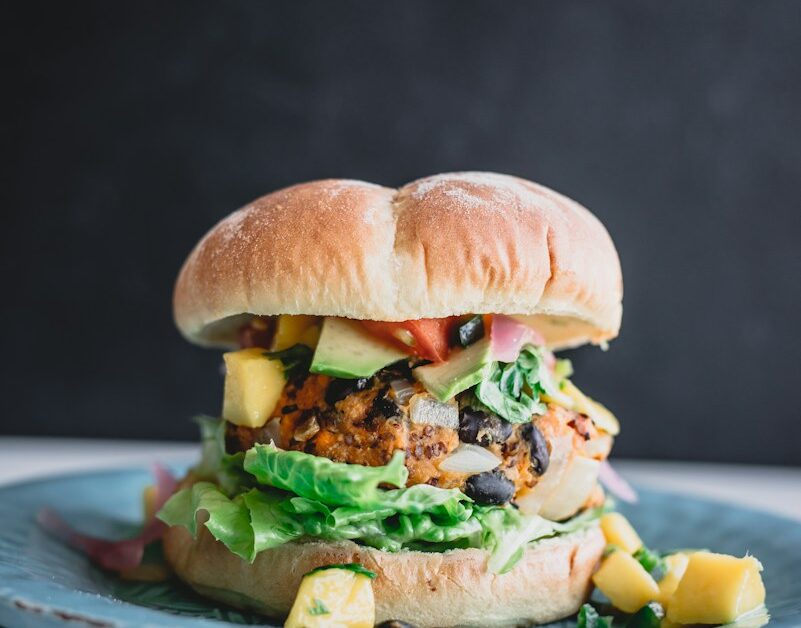The Intersection of Veganism and Pregnancy: A Comprehensive Look
Veganism, a lifestyle that excludes the consumption of animal products, has gained significant popularity in recent years. However, when it comes to pregnancy, concerns arise about whether a vegan diet can provide all the necessary nutrients for both the mother and the developing fetus. This article aims to explore the intersection of veganism and pregnancy, examining the potential benefits and challenges, as well as providing valuable insights for expectant vegan mothers.
The Benefits of a Vegan Pregnancy
While some may question the adequacy of a vegan diet during pregnancy, research suggests that a well-planned vegan diet can offer numerous benefits for both the mother and the baby:
- Increased nutrient intake: A vegan diet typically includes higher amounts of fruits, vegetables, whole grains, legumes, and nuts, which are rich in essential nutrients such as fiber, vitamins, minerals, and antioxidants.
- Lower risk of gestational diabetes: Studies have shown that vegan pregnancies are associated with a reduced risk of developing gestational diabetes compared to non-vegan pregnancies.
- Reduced risk of pre-eclampsia: Pre-eclampsia, a potentially dangerous condition characterized by high blood pressure during pregnancy, may occur less frequently in vegan mothers.
- Healthier weight gain: Vegan pregnancies tend to result in lower maternal weight gain, which can reduce the risk of complications such as gestational hypertension and cesarean delivery.
Key Nutrients for Vegan Pregnancies
While a vegan diet can provide ample nutrition, it is crucial for expectant mothers to pay attention to certain key nutrients to ensure a healthy pregnancy:
- Protein: Plant-based protein sources such as legumes, tofu, tempeh, seitan, and quinoa should be consumed to meet the increased protein requirements during pregnancy.
- Iron: Plant-based iron sources like dark leafy greens, lentils, beans, and fortified cereals should be consumed alongside vitamin C-rich foods to enhance iron absorption.
- Calcium: Adequate calcium intake can be achieved through plant-based sources such as fortified plant milk, tofu, tempeh, almonds, and leafy greens.
- Vitamin B12: As vitamin B12 is primarily found in animal products, vegan mothers should consider supplementation or consuming fortified foods to meet their B12 needs.
- Omega-3 fatty acids: Plant-based sources of omega-3s, such as flaxseeds, chia seeds, walnuts, and algae-based supplements, can help meet the requirements for healthy fetal brain development.
Challenges and Considerations
While a vegan diet can be nutritionally adequate during pregnancy, there are some challenges and considerations that expectant vegan mothers should be aware of:
- Increased calorie intake: Pregnant women require additional calories to support the growth of the fetus. Vegan foods tend to be less calorie-dense, so it is important to consume larger quantities or choose more energy-dense options.
- Vitamin D: Since vitamin D is mainly obtained through sunlight exposure and fortified animal products, vegan mothers should ensure adequate sun exposure or consider supplementation.
- Iodine: Plant-based diets may be lower in iodine, a crucial nutrient for fetal brain development. Vegan mothers should include iodine-rich foods like seaweed or consider iodine supplementation.
- Consultation with healthcare professionals: It is essential for vegan mothers to work closely with healthcare professionals, including registered dietitians, to ensure proper nutrient intake and monitor any potential deficiencies.
Real-Life Examples
Many vegan mothers have successfully navigated pregnancy while following a plant-based diet. For instance, Serena Williams, a world-renowned tennis player, maintained her vegan lifestyle during pregnancy and reported feeling energetic and healthy throughout the process. Additionally, a study published in the journal Nutrients found that vegan mothers had similar birth weights and lengths of gestation compared to non-vegan mothers, indicating that a well-planned vegan diet can support healthy pregnancies.
In conclusion, a well-planned vegan diet can provide all the necessary nutrients for a healthy pregnancy. By ensuring adequate intake of key nutrients and addressing potential challenges, expectant vegan mothers can confidently embrace their plant-based lifestyle while nurturing the growth and development of their babies.
